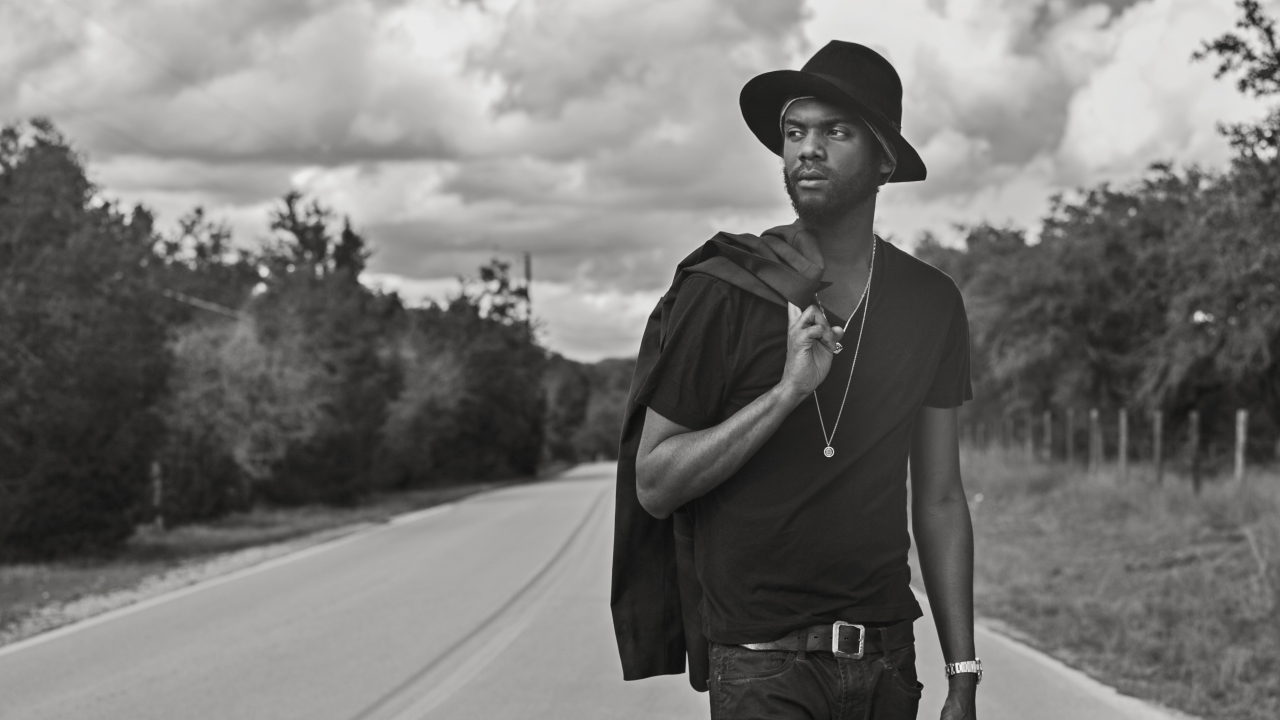Welcome Back: Gary Clark Jr.
The bluesman is back, with tunes fuelled by a boyhood pet name and Keith Richards’s shepherd’s pie.

Superstar musicians have always gone to great lengths to ‘keep it real’. For his latest album, The Story Of Sonny Boy Slim, Gary Clark Jr. did the same, swatting away the plaudits and returning to his native Austin, Texas, to record in down-home fashion.
Splicing blues and soul with the palpable influence of hip-hop, Clark tells us his new material is the sound of a man channelling his 12-year-old self, set loose in a musical sweet shop.
You’re a household name now. Is it hard to write with such scrutiny on you?
It’s not hard, actually. I just went back home to Austin, where I felt very comfortable, shut everything out and kinda brought it back to home base. I sat in a room with three other guys, and they let me gather my thoughts, get my chops up, just make noise and express myself the way that was real to me. I just let it all go.
The album’s got a lot of different flavours…
I was trying to get back to that place when I was 12 years old, and how excited I was about music. And there weren’t any rules then, because I didn’t know what to do anyway. Y’know, I was just figuring it out and the sky was the limit. As you grow as a musician, certain ideas can kinda confine those thoughts. If I over-think, I might start thinking, ‘Oh, I have to pick a genre’. I went in the studio and said, ‘Hey guys, I’m just gonna let loose…’
So who is Sonny Boy Slim?
Sign up below to get the latest from Classic Rock, plus exclusive special offers, direct to your inbox!
Well, my mom called me ‘Sonny Boy’ when I was a kid – every now and then, she still calls me that. Then there’s this guy Greg Izor, a great harmonica player from Austin, and he calls me ‘Slim’. I just put it together. But it could be anybody, really.
You played most of the instruments – which was the hardest?
Playing the drums was the most challenging, because I was like a kid who’d just gotten behind a drum set. I was having too much fun with it. I had no discipline, no restraint. I’m sure the guys in the control room were like, ‘I hope this dude gets it out of his system so we can get down to business here’.
Is it flattering or embarrassing to be called the ‘saviour of blues’?
It used to make me feel awkward. I was just like anybody in Austin – just trying to get a gig. So to have that all of a sudden, it was like, ‘Whoa, that’s a bit heavy’. But it’s good when people have some faith in you.
What do you remember about touring with the Stones?
They were cool. We just hung out, listened to some Otis Redding, talked about blues. Y’know, it was really cool to hear those guys talk about Muddy Waters and Howlin’ Wolf, the way that I would talk to my people about it. Y’know, the same enthusiasm, like, ‘Man, can you believe how bad-ass they were?’ I got to have some of Keith’s shepherd’s pie. I learned a big lesson. Don’t break the crust. Keith is the only one who can do it.
Do you think the Confederate flag should be banned?
When I grew up in Austin, I had that flag waved in front of my face and I’ve been called all kinds of things. But I don’t let anything like that affect me. I feel like the moment that something like that affects me, then it has power. I’m trying to live my life and go about my business.
Henry Yates has been a freelance journalist since 2002 and written about music for titles including The Guardian, The Telegraph, NME, Classic Rock, Guitarist, Total Guitar and Metal Hammer. He is the author of Walter Trout's official biography, Rescued From Reality, a music pundit on Times Radio and BBC TV, and an interviewer who has spoken to Brian May, Jimmy Page, Ozzy Osbourne, Ronnie Wood, Dave Grohl, Marilyn Manson, Kiefer Sutherland and many more.

